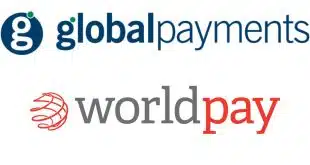The battle over the Illinois Interchange Fee Prohibition Act has taken a huge new turn.
Early Thursday, the Illinois Attorney General’s Office filed a motion with the United States District Court for the Northern District of Illinois’s Eastern Division challenging an Amicus brief from the Office of the Comptroller of the Currency in support of a motion for a preliminary injunction to halt implementation of the Illinois Interchange Fee Prohibition Act. The OCC filed its brief late Wednesday.
In its brief, the OCC argues the Illinois Interchange Fee Prohibition Act (IIFPA) flies in the face of national banking laws, such as the National Banking Act, that grant financial institutions the power to charge fees for processing credit and debit card transactions.

In addition, the OCC argues the IIFPA’s limitations on data usage around credit and debit card transactions is “imprudent” and will “weaken” financial institutions’ ability to prevent fraud, manage risk, and provide services to consumers.
“Simply put, the IIFPA’s prohibition on banks’ ability to use transaction data beyond the processing of the payment is fraught with risk, including customer injury,” the OCC says in the brief.
A hearing on the preliminary injunction to delay implementation of the IIFPA is scheduled for Oct. 30.
Prior to the OCC’s filing, the Electronic Payments Coalition filed an amicus brief arguing against the validity of the IIPFA last month.
That the OCC filed a brief in support of the injunction is not a surprise, says Scott Talbott, executive vice president for the Electronic Transactions Association, which filed an amicus brief in support of the injunction Sept. 26.
“The OCC is the primary regulator for banks and is charged with ensuring the safety and soundness of the national banking system, and the IIFPA flies directly in the face of the National Banking Act,” Talbott says.
Organizations representing banks support the motion for an injunction to delay implementation of the IIFPA so that the banking industry and legislators can have more time to consider the “consequences” of the law, which was “passed in the dead of night without debate,” Talbott says
In response to the OCC’s brief, the Illinois Attorney General’s Office filed a motion asking the court to dismiss the OCC’s brief, calling it “untimely” as it was not filed within seven days of filing for “the principal brief of the party being supported.”
To support its argument, Illinois Attorney General Kwame Raoul’s office cites Rule 29 of the Federal Rules of Appellate Procedure.
“The rule’s purpose is to permit the party opposing the amicus brief to have the opportunity to review it and respond as necessary,” the Illinois AG’s Office says in its motion.
“The OCC’s proposed amicus brief plainly does not meet that standard,” the Illinois AG’s office continues. “Plaintiffs filed their motion for a preliminary injunction six weeks ago, and the Attorney General must file his response to that motion in less than 48 hours…At this late stage, it would be prejudicial to permit the brief to be filed, because there simply is not time to address its arguments before the deadline.”
Should the OCC’s brief not be dismissed, the Illinois AG’s office “requests a one-week extension of the deadline for filing the opposition brief, such that the brief is due on or before October 11, 2024, and a five-page expansion of the page limit (to 45 pages).”
The Illinois Attorney General’s office could not be reached prior to deadline.
The IIFPA, which is scheduled to go into effect July 1, 2025, exempts Illinois merchants from paying interchange on sales tax and gratuities linked to credit and debit card transactions. In exchange, the state will cap what merchants earn for collecting sales tax at $1,000 per month.
With opponents and proponents of the IIFPA having filed their respective motions, the next step is for the judge to weigh the arguments prior to the preliminary hearing. An Amicus brief, a.k.a. a friend-of-the-court brief, is a legal document intended to provide the court with outside information, expertise, or arguments that can help the court make a decision in the case.
“The judge has to gather information to make a ruling on the [proposed] injunction and Amicus briefs are part of the process,” says Talbott. “The OCC’s voice is an important voice in not only the injunction hearing, but the lawsuit itself.”
The Illinois Retail Merchants Association, which supports the IIPFA, said by email it has the briefs filed by the OCC and the Illinois Ag’s office under review.





